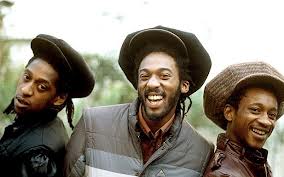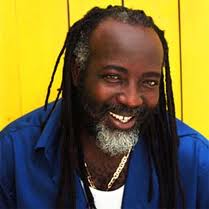By Howard Campbell–
BORN in England to parents of Caribbean heritage, music producer/engineer Jermaine Forde has always related to different cultures in both regions. He says bridging a generational divide is the focus of his music.
The son of Aswad guitarist/singer Brinsley Forde, Forde produces artists from Britain and Jamaica from his base in London. Most of those productions are released through Ajang Music, a company he operates with his mother, music industry veteran Marcia Simpson.
 |
Forde, 36, says the days when first-generation black and Asian Britons listened to music from their parents’ homeland are long over. It is a point he tries to bring across with artistes he works with in Britain and Jamaica.
“What happen over the years is that Jamaicans an’ English get together an’ have kids. That kid grow up an’ decide him waan deejay an’ him sound jus’ like a man from Spanish Town,” Forde reasoned, adding: “I’m not trying to cut out the Jamaican influence in England; I’m trying to make the youth dem in England stars in their own right so when you have a stage show with Jamaican an’ English artist, it makes the business wider.”
G Starr, a British singjay with Jamaican roots, Belgian singer Onesty and Jamaican singjay Spade are some of the emerging acts Forde has worked with in the last two years.
They are featured on Ajang’s latest productions, the Dreamland and Life Starts ‘riddims’, which are driven by songs from established artists including Capleton and Sizzla.
Solve Them is Capleton’s song on the Dreamland, while Sizzla’s is I Like You Girl. Capleton has given Forde his biggest hit to date, 1995′s How Long, which was recorded on the popular Pyramid beat.
Jermaine Forde moved to Jamaica as a youngster with his mother. As a teenager, he soaked up the dancehall/reggae vibe with frequent visits to leading studios, including Freddie McGregor’s Big Ship and Castro Brown’s New Name.
Back in England, he worked with leading reggae distributor Jet Star Records, producing songs by a number of acts such as Beenie Man and Bushman. Even then, he challenged that company’s unofficial policy of resurrecting classic Jamaican beats.
“I used to say, ‘instead of going back to Channel One, why don’t we start our own thing”. They said, ‘No, jus’ do this,” he recalled. “If my generation continues to do that, then all we’re doing is going around in circles.”
With his father an icon of British roots-reggae and stepfather Duckie Simpson, the founder of Grammy winners Black Uhuru, Forde has an appreciation for music from the 1970s and 1980s. In addition to producing, he has toured as a sound engineer with a diverse cast of artists including Julian Marley and journeyman British roots band Misty In Roots.
While his goal is to produce original songs, he shares a similar objective with the elders.
“I’d like to leave a legacy of clean, good music, something for the whole family to enjoy,” he said.











